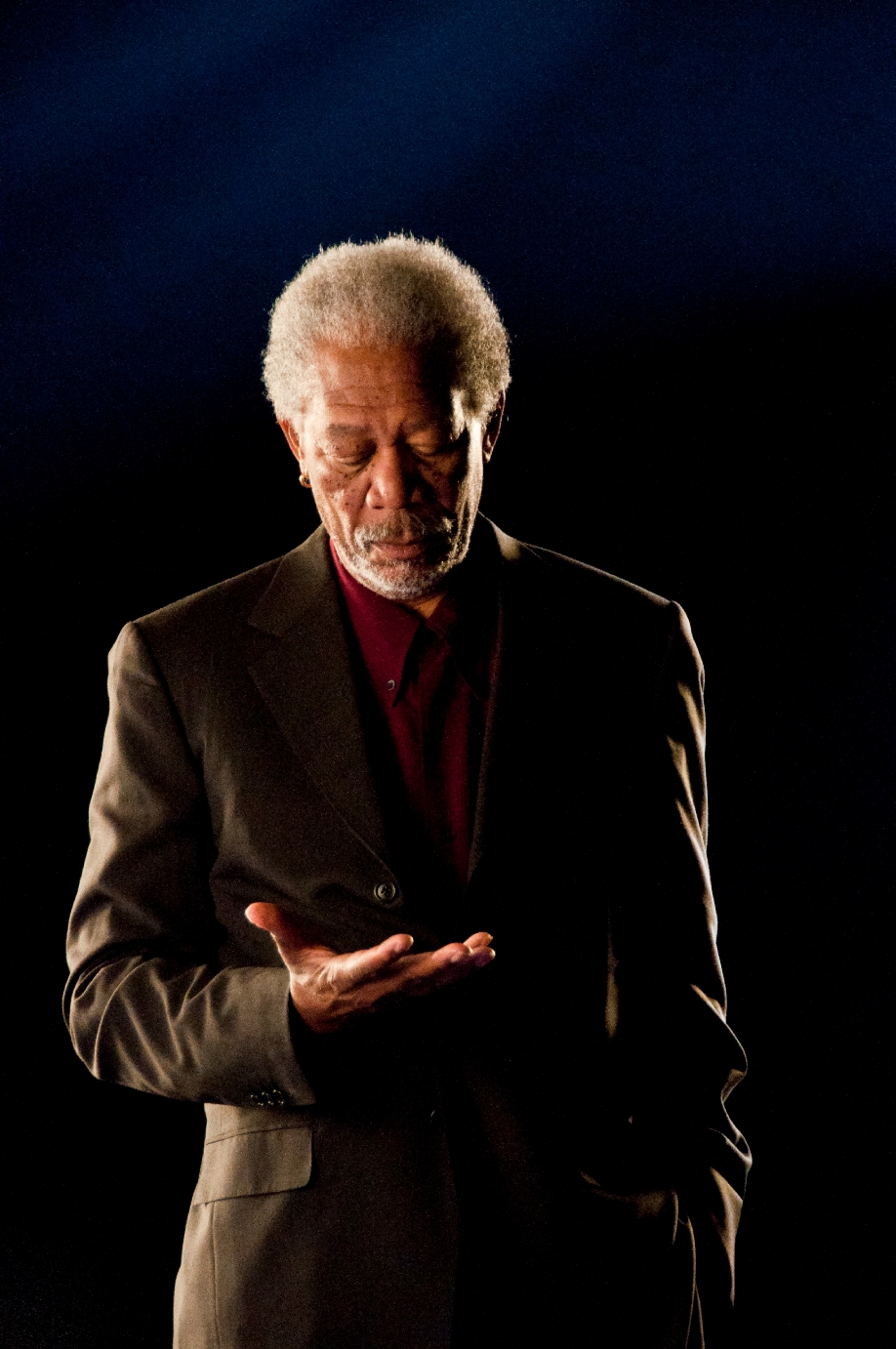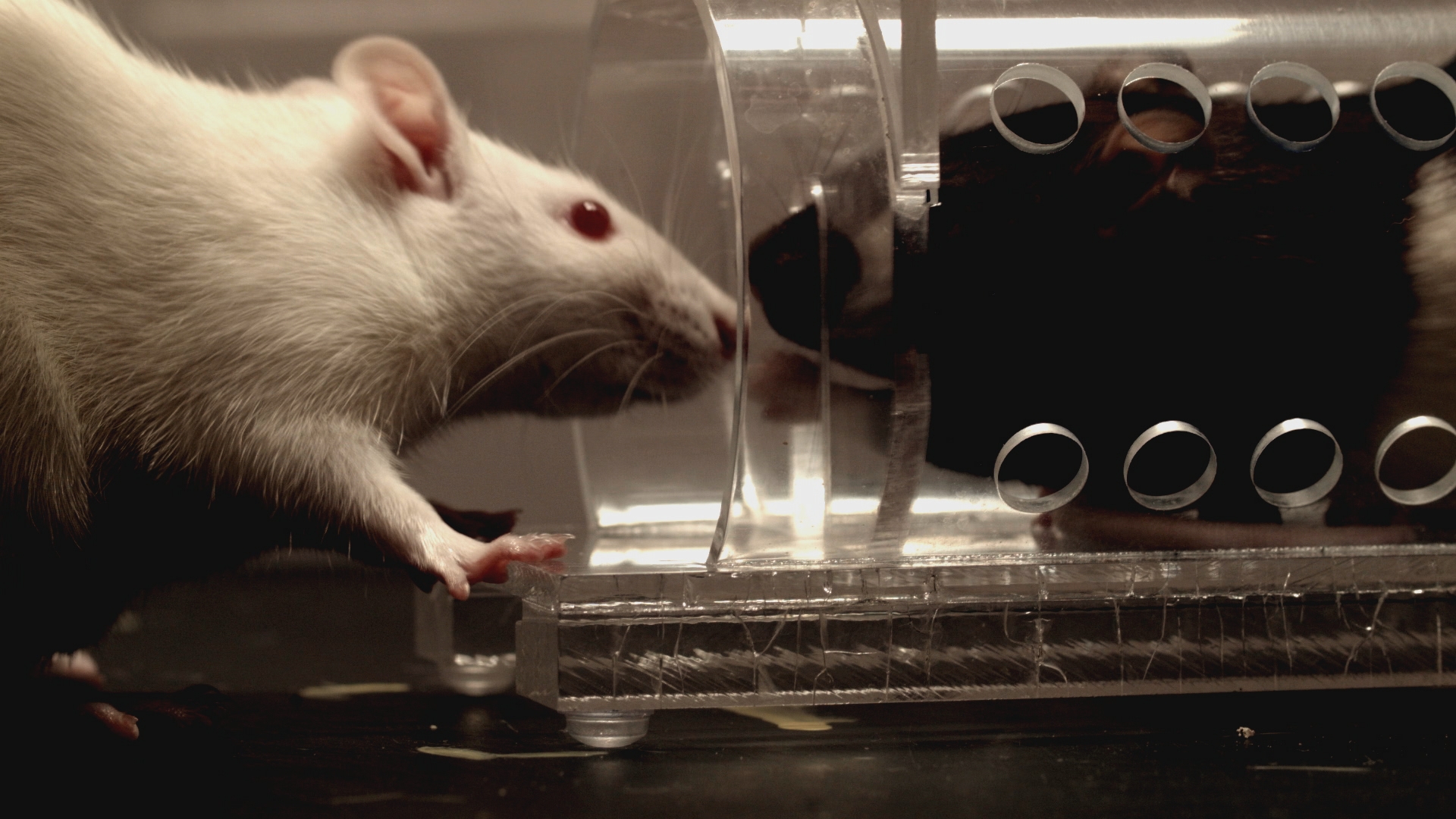 –Season 6 premieres with a new look and topics ripped from the headlines–
–Season 6 premieres with a new look and topics ripped from the headlines–
New Delhi, July 1, 2015: Discovery Science’s triple Emmy®– nominated hit series THROUGH THE WORMHOLE WITH MORGAN FREEMAN is back for its sixth and most provocative season. Airing every Saturday at 10PM, starting July 4, the series will tackle tough topics as race, religion and our future as a species, and will challenge viewers as never before. From the topics of bigotry to whether our reality is virtual to the human proclivity for lying, the new season will challenge everything you know about space, time and morality.
“I am thrilled to be announcing the premiere of the sixth season of Through the Wormhole. When we first began this journey, I never imagined how many questions could be examined and how far mankind could push the boundaries of what was possible,” says Morgan Freeman, executive producer and host of the series. “This season, we’ve given the series a bold new look and the questions are more provocative than ever. I know fans both old and new to the show will not be disappointed.”
In season six of THROUGH THE WORMHOLE WITH MORGAN FREEMAN, Discovery Science strives to take on some of the most hotly debated issues of today. Each episode features leading experts, thinkers and scientists presenting groundbreaking theories. Every week viewers will be challenged to consider new perspectives and confronted with ideas that push the envelope of conventional television. This season has a whole new look with an inspired set design and interactive features.


EPISODE DESCRIPTIONS
Are We All Bigots?
If you had less than one second to make a life-or-death decision to shoot a man who might be armed with a lethal weapon, what would you do? Would the ethnicity of the man affect your decision? Are you sure? The outcome – whatever your race – will surprise you. Brain imaging studies are showing that negative cultural stereotypes hijack everyone’s subconscious decision-making. But some science says we can overcome bigotry through exposure, self-awareness and flexible social networks… and, most controversially of all, ultra-violent video games!
Can Time Go Backwards?
We move around in space, but we are stuck in a prison of time moving ever forwards. Einstein said, “The distinction between past, present and future is only a stubbornly persistent illusion.” Is our experience of the ticking clock merely a trick of the mind? Could science ever make the clock move backwards? Experiments in quantum physics are showing that the future influences the present: what happens later limits the choices we think we have now. The laws of physics say visiting or talking to ourselves in the past is possible – but changing history once we get there is not.
Are We Here for a Reason?
Evolution tells us that all life exists for only one purpose: to reproduce. But is that all there is? How could such a simple imperative lead us to create great art and civilizations? A new theory suggests that instead of passing on genes, our ultimate purpose is to process and pass on information. We are the universe figuring itself out. Scientists dig deep into DNA, chemistry, technology and engineering to find the meaning of life. One thing is certain: living is easier if you find a reason for living.
Do We Live in the Matrix?
Our universe seems real. But what if it’s a videogame? Scientists in a variety of fields are taking seriously the possibility that we live in a virtual reality. Maybe the Big Bang was just the moment someone flipped the switch and turned on our universe. Maybe what looks random has already been programmed to happen. If some advanced civilization did design and program our universe, would we ever know? Scientists are looking for glitches in the laws of the universe that may uncover its hidden code.
Are Aliens Inside Us?
Odds are excellent that extraterrestrial life exists. So why haven’t we found aliens out in the galaxy? Are we looking in the wrong places? New research shows we should look closer to home, even inside our bodies. It turns out that a lot of our DNA is from a mysterious, nonhuman source. Theoretically, alien microbial life can make the journey to Earth from distant worlds, and scientists are finding some unearthly microbes in our upper atmosphere. Could it be from outer space? Could we be part alien? It’s even possible alien life is already here as digital life forms, hiding inside our technology.
Why Do We Lie?
We all agree lying is shameful. Yet we still deliberately deceive each other constantly. Are our brains wired for lying from a young age? The brains of pathological liars may provide insights. Will technology make it easier for us to be dishonest, or could it someday instantly reveal someone is lying? Perhaps we are deceitful because our limited senses prevent us from seeing the real truth. Scientists say our own memories deceive us, and have managed to implant false memories. Other scientists look for ultimate truth in the subatomic world … only to end up turning reality on its head.
About Discovery Science
From the depths of our galaxy to the practical science in the world around us, Discovery Science is the only network dedicated to making science programming accessible, relevant and entertaining. By examining the impact of science and technology on our everyday lives, Discovery Science searches for the answers to the questions that have eluded us for centuries and reveals life’s greatest mysteries and smallest wonders, from uncovering lost worlds to exploring the latest in scientific discoveries from today’s headlines. Discovery Science reaches 32 million subscribers in Asia Pacific.
About Discovery Communications
Discovery Communications (Nasdaq: DISCA, DISCB, DISCK) is the world’s #1 pay-TV programmer reaching nearly 3 billion cumulative subscribers in more than 220 countries and territories. Discovery is dedicated to satisfying curiosity, engaging and entertaining viewers with high-quality content on worldwide television networks, led by Discovery Channel, TLC, Animal Planet, Investigation Discovery and Science, as well as U.S. joint venture network OWN: Oprah Winfrey Network. Discovery also controls Eurosport International, a premier sports entertainment group, including six pay-TV network brands across Europe and Asia Pacific. Discovery also is a leading provider of educational products and services to schools, including an award-winning series of K-12 digital textbooks, through Discovery Education, and a digital leader with a diversified online portfolio, including Discovery Digital Networks. In Asia Pacific, 15 Discovery brands reach 669 million cumulative subscribers in 38 countries and territories with programming customized in 15 languages and dialects.
